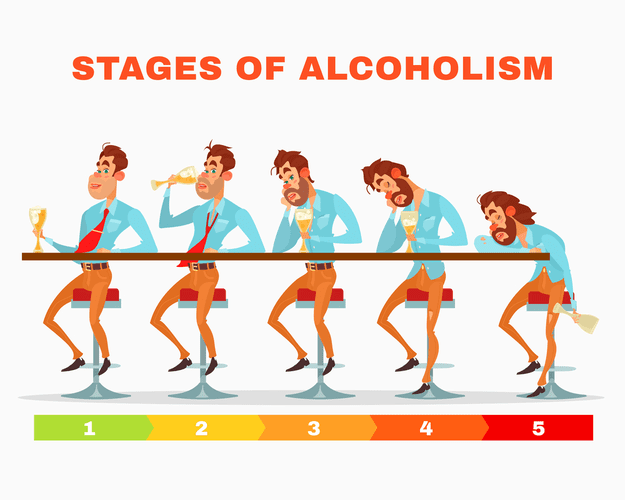Excessive marijuana addiction alcohol consumption and alcohol use disorders (AUD) are among the leading preventable causes of premature morbidity and mortality and are considered a major public health concern. In order to reduce the individual and societal burden of excessive alcohol use, it is crucial to identify high-risk individuals at earlier stages and to provide effective interventions to prevent further progression. Stressful experiences are important risk factors for excessive alcohol consumption and AUDs. However, the underlying biological and psychological mechanisms are still poorly understood. If you or a loved one uses substances to cope, it’s important to recognize and address the situation as early as possible. To gain a better understanding of the relationship between substance use and coping with social anxiety among young adults, researchers examined daily data from 257 participants aged 18–25 years who were enrolled in a 2-year study of alcohol and cannabis use.
- For instance, greater variability and stronger escalation in heavy alcohol use has been observed for males, but not females, over time (Hussong et al., 1998).
- If you grow up in adverse circumstances, you may be more likely to develop AUD, especially if you grew up in an area with high rates of teenage drinking, as peer pressure can play a role in your development of AUD.
- It is also robust against several potential confounders such as time of day or participant awareness 84.
- An important novel contribution of the current study is the use of longitudinal data across a critical developmental span, integrating both self-report and diagnostic measures.
- Social and environmental factors also play a significant role in why people turn to drugs and alcohol.
How Can Professional Mental Health Services Help?

They might not understand the control they have over their emotions and reactions, or they might struggle to make decisions that are in their best interest. Individuals live at the facility and participate in daily activities focused on recovery. Research shows that addiction to alcohol or drugs is a chronic brain disease. It also allows you to work through your emotions and live a more fulfilling life.

Treatment Services
The present MESA study was developed in response to the incomplete understanding of the underlying mechanisms of the relationship between stress and alcohol consumption. As pointed out, there is a significant amount of people suffering from AUDs with tremendous consequences for the individual as well as for society and health care systems. There is need for preventive interventions at the biological, psychological or social level for individuals at high risk of problematic alcohol consumption before the manifestation of AUD.
- And in response, we each have unique methods of weathering these emotional storms.
- The responses to trauma can vary tremendously as the effect and perception of trauma are completely subjective.
- When individuals experience prolonged stress, their bodies respond by releasing stress hormones like cortisol.
Participants
For example, many people can resort to “retail therapy,” buying things online or in-store to make themselves feel better. While giving yourself a gift occasionally is nice, retail therapy reinforces a strong connection between stress and your wallet. You have to mentally dive into your new activity, immerse yourself in what you’re doing, and concentrate on every aspect. Alcohol affects the central nervous system, causing changes in mood and behavior. When ingested, it produces a brief feeling of pleasure or relaxation, making it an attractive distraction from stress, anxiety, or emotional pain.
Uncovering Past Trauma
Talking to a https://adelaarconsulting.es/aa-sobriety-milestones-chips-coins-colors-meanings/ professional therapist trained in addiction can help identify the root causes of drinking as a coping mechanism. It can be challenging or scary at first, but a professional can help you do introspective work, highlighting and addressing topics that make you feel vulnerable or insecure. While it doesn’t define us, trauma can also heavily impact how we self-medicate. Lots of people turn to alcohol to cope because they want to escape from their problems, feel relieved, or take a break.
There are many ways you can encourage someone who is turning to substances to self-medicate to get healthy. Continued misuse of alcohol or other substances causes progressive changes called neuroadaptations to occur alcohol as a coping mechanism in the brain. They also drive the transition from controlled, occasional substance use to chronic misuse. This blog is for informational purposes only and should not be a substitute for medical advice. We understand that everyone’s situation is unique, and this content is to provide an overall understanding of substance use disorders. These disorders are very complex, and this post does not take into account the unique circumstances for every individual.
Availability of data and materials
Over time, regular drinking can alter your brain chemistry, contributing to the development of mental health conditions, such as anxiety and depression. In fact, those who are dependent on alcohol have a 3.6 and 2.6 times higher risk of developing a mood or anxiety disorder, respectively. During the inperson assessment, participants completed a psychological assessment battery. In addition to those measures of interest described in detail below, several measures were administered to be used for the larger study aims. These included measures of family history of alcohol use disorders, alcohol expectancies, past year life stressors, anxiety sensitivity, and the severity of symptoms of social phobia, depression, and anxiety.



